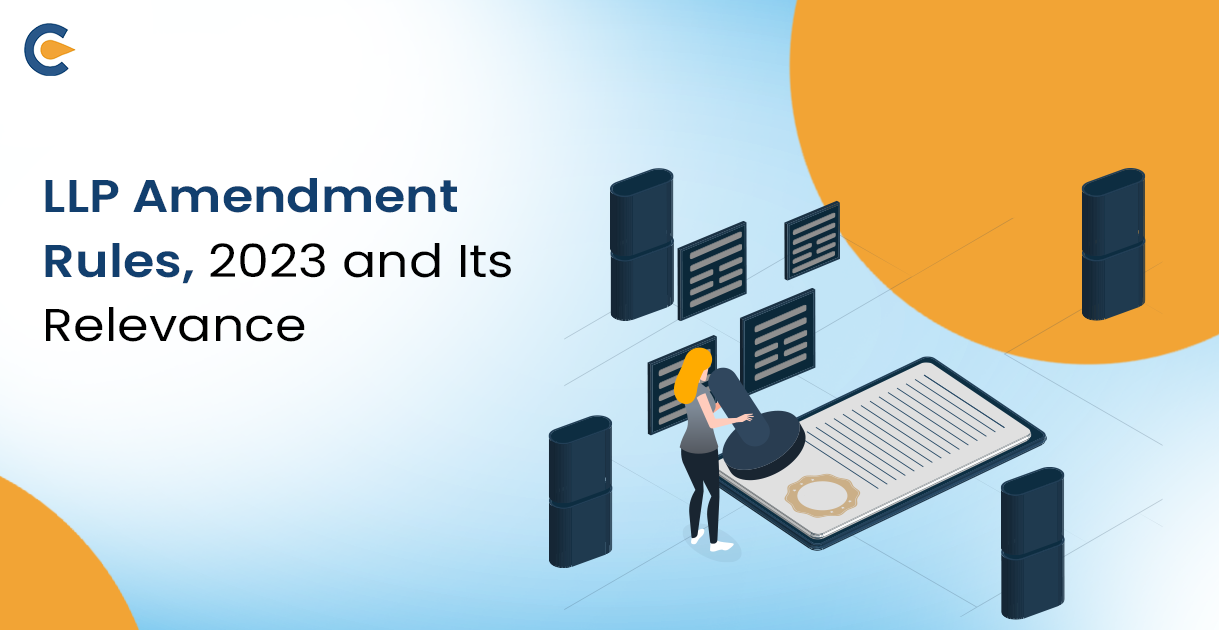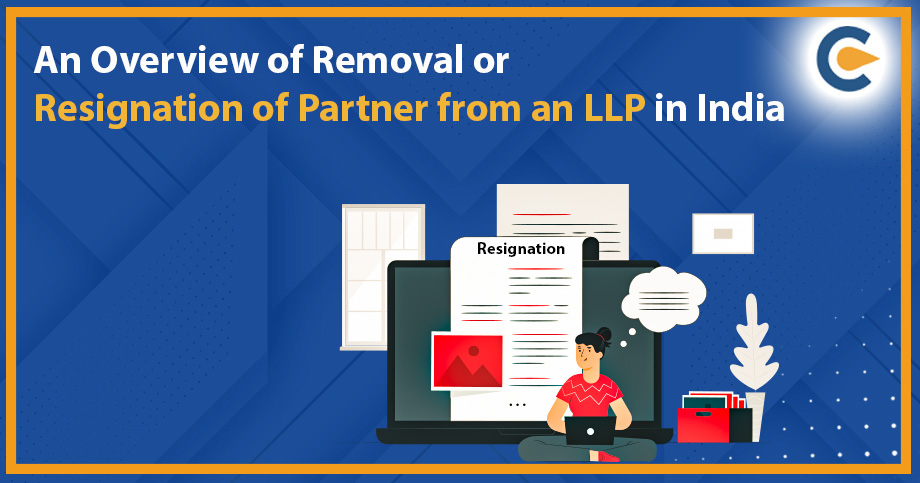Limited Liability Partnership, as the name suggests, imposes only limited liabilities on the partners of the firm, and no one is exclusively liable for any of the debts or losses suffered by the organisation during the due course of the business. This evades them from the possibility of humongous debts suffered by the company in any case. A Limited Liability Partnership must have at least two members, and the percentage of the liability is not standard as it may vary accordingly. Decisions of the firm can be taken by certain partners but it has to be approved and signed by the other partners as well. LLP, unlike partnership firms, has a separate legal entity under the eyes of law, which doesn’t make the partners personally liable for any debts or losses in the business. None of the partners is liable for the unauthorised acts of the other partner, and they are not jointly liable for the wrongful act. However, major changes have recently been introduced in a Limited Liability Partnership by the Ministry of Corporate Affairs. The act that governs partnership registration in India is The Limited Liability Partnership Act, 2008, which was enacted in 2009, although there have been a few LLP Amendment rules.
Who Can Form a Limited Liability Partnership?
For the formation of a Limited Liability Partnership, one needs to comply with the LLP rules in India –
- LLP needs to have at least two members for incorporation
- Age of the members must be above 18 years
- They should have a valid Indian address
- The partners can be individuals or a corporate body
- Foreign individuals and corporate bodies can also form an LLP, but they need to furnish some documents to the registrar of companies.
Advantages of an LLP
A Limited Liability Partnership firm is formed by professionals who have good experience under their name with quite a few clients. It is commonly formed by doctors and lawyers. These professionals come together and pool their resources in order to reduce their costs as well as to use other’s expertise to grow further. A reduction in cost means the profit is maximised, and this money can now be further invested to grow the business multi-fold.
The associate in an LLP may likewise have various junior associates in the firm who work for them with expectations of some time or another making full accomplice. These lesser associates are paid compensation and frequently have no stake or obligation in the organisation. The significant point is that they are assigned experts who are able to accomplish the work that the associates get. This is another way that LLPs assist the associate with scaling their tasks. Junior associates and representatives remove the detailed work and let loose the associates zero in on getting new business.
One more benefit of the LLP rules in India is the capacity to acquire associates and let associates out. Since an association understanding exists for an LLP, the associate can be added or resigned as framed by the arrangement. This proves to be useful, as the LLP can continuously add who carry existing business with them. Typically, the choice to add requires endorsement from the current associate in general.
Limited Liability Partnership (Third Amendment) Rules, 2023
On 27 October 2023, a third amendment was made to the Limited Liability Partnership Rules, 2009, by introducing amended LLP rules in India by the notification from the Ministry of Corporate Affairs. There were some major changes which were brought through the LLP Amendment, which are –
Register of Partners
LLPs have to maintain a register of the partners from the aforementioned date at any cost as per the new LLP rules in India made through recent LLP Amendment rules. The provision was added through Rule 22A, which says that after the above-mentioned date, if any LLP is incorporated, then it has to maintain the register of the partners in Form 4A starting from the date of its incorporation. In the case of the already incorporated LLP, they need to maintain the said registers within 30 days of the commencement of the rules of amendment, and the asked register has to be kept in the registered office of the LLP firm. The register of the proposed partners would have specifics, including their individual details (for example, name, Corporate Identification Number, and so on), data in regard to resources and different types of commitment, and useful proprietorship, alongside other important necessary details.
With regards to organisations, such a necessity is, as of now, set up; a register of individuals must be kept up with by each organisation, according to Section 88 of The Companies Act, 2013, in the recommended way.
Components of the register
The register should include the following documents of the partners –
- Name, full address, PAN/ CIN (Corporate Identification Number), Unique Identification Number, name of either father/ mother/ spouse, details of occupation, Nationality, Nominee name and address.
- Date from which he/ she has become the partner of the firm.
- Cessation date
- Contribution to the firm with respect to the amount and nature of value they are going to input into the firm.
- When there is any need for a change in the name, address, contribution, or partnership cessation, then the register needs to be updated within seven days of such change.
Beneficial Interest Declaration
In the event that an individual with no gainful interest in commitment is named in the register of associates, he needs to get details of the individual who really holds the useful interest, as a statement in Form 4B, under Rule 22B. This statement ought to be recorded with the LLP in something like 30 days from the date on which his name was placed in the register. In the rules of amendment, such people are known to be enlisted as partners of the partnership firm.
Rule 22B(2) imposes some obligations on the individuals who have any beneficial interest in the contribution of the Limited Liability Partnership firm, but the entry of their name is not listed in the register of the firm, to make that interest known by filling the declaration in Form 4C. It needs to be filed by the interest holder within 30 days of holding such interest in the firm.
The previously mentioned prerequisites to make statements in regards to beneficial interest are like the one’s material to organisations under Section 89 of the Companies Act, 2013; if any individual with no beneficial interest in the company’s shares has been named in the register of the partners from the organisation as the holder of shares, he/she is committed to making an announcement in the previously set way. An individual who holds or secures a valuable interest in the shares of the said company is likewise expected to make a statement to such an organisation.
Record of Declaration as per new LLP rules in India
LLP Amendment rules in India have brought some very distinctive and firm rules in the country through the LLP Amendment Act, which is a great step to promote transparency in the business carried out by the firm. If and when any declaration is made through Form 4B or Form 4C, it is required to be registered in the register of partners after the LLP Amendment rules. After it is recorded in the register, it needs to be submitted to the registrar of companies, so the LLP has to file a return through Form D to the registrar of companies, and it has to be sent within 30 days of the said declaration in the register of partners. The provision amended is in line with Section 89 (6)of the Companies Act, where the companies are required to follow the same process if any declaration is made by the members. This keeps the record books clean and negates any chances of extended liability on the shoulders of any partner or the firm itself.
Partner Appointment
Post LLP Amendment, it is mandatory for an LLP to identify a partner to the registrar for contribution of the beneficial interest in the firm through Form 4 under Rule 22B (4).
Likewise, MCA (Ministry of Corporate Affairs) issued an advisory to the Companies (Management and Administration) Rules, 2014, that day (27October 2023) only to make it compulsory for every company incorporated under the Companies Act to notify the registrar of the partners who hold any kind of beneficial interest in the company’s shares. These details have to be provided by the company in their annual return.
Relevance of LLP Amendment Rules in India
LLP Amendment holds significant relevance in the context of information about the beneficiaries of the partnership firm. The LLP Amendment rules in India will bring a lot of transparency in the functioning, and apart from this, the registrar and MCA will also be in the knowledge of the beneficiaries of the firm. According to the Companies Act 2013, a person holding any beneficiary position in the shares of the company was required to notify the registrar of the companies, and now, after the LLP Amendment rules in India, these beneficial partners getting beneficial interest in an LLP also need to notify the registrar about the position they are holding in the firm. These LLP Amendments will make it easy for the authorities to identify the beneficial interest holders who are not the face of that LLP.
When the provisions applicable to LLPs and companies are compared, it is clear that the Companies Act of 2013 imposes fines for failure to maintain the register of members, make the declaration in respect of beneficial interest, or file the return in respect of the declaration received by the company. The current notification makes no mention of the consequences of non-compliance with the LLP Amendment rules. However, in the event of such non-compliance, Section 74 of the Limited Liability Partnership Act, 2008, will apply. The stated Section provides that if no punishment is established for the violation of any of the requirements of the Act or rules issued thereunder, the penalty applicable to the LLP, partner, designated partner, or any other person who is in default would be the following –
- A penalty of rupees five thousand
- In case the contravention is in continuation, then an extended penalty will be levied, which would be one hundred rupees per day from the first day of the contravention, and it can extend up to rupees one lakh.
Conclusion
Limited liability Partnership helps professionals with their growth, and the LLP amendment Rules, 2023 will help the partners maintain transparency in the business and achieve higher goals without any trouble or fear of any potential threat of cheating by another partner. Pooling the resources with limited liability helps the individuals grow faster and in a secure environment governed by the Act.
Corpbiz provides a smooth registration of the Limited Liability Partnership in the country with proper documentation in a timely manner. Our team complies will the latest LLP amendment to make sure that your application is accurate.
Frequently Asked Questions
In order to amend the LLP agreement, one needs to fill out Form 3, which should contain all the detailed changes brought in by the LLP from the mentioned date. If any new partner is added, then his/ her full details would be required to be submitted to the registrar of the companies, and in this case, Form 4 is also required to be filled out along with Form 3.
According to the Limited Liability Partnership (Amendment) Rules, 2022, you can change the name of the LLP by following the LLP rules in India. As per the LLP Amendment, 2021, a new rule, 19A, was added to talk about the granting of a new name to an LLP as mentioned in Section 17(3) of the LLP Act, 2008.
Since LLP is a legal entity, the debts of a partnership firm are the firm’s liability and not of the partners. None of the partners is individually liable for the firm’s debts or losses. They are just liable in the ambit of their share in the firm and nothing beyond that.
The Ministry of Corporate Affairs (MCA) has announced the Limited Liability Partnership (Amendment) Rules, 2023, in a notice dated 2 June 2023. These regulations alter the current Limited Liability Partnership regulations of 2009.
Yes, Foreign individuals and corporate bodies can also form an LLP, but they need to furnish some documents to the registrar of companies. These documents include their passports with the registrar of the companies after notarising them from the concerned authorities in India or with the Indian embassy present in that country. The documents need to be in the English language, and if otherwise, they should be notarised or apostil led with their translation.
Amendment to LLP rules in India came into effect on 27 October 2023, as the third amendment was made in the Limited Liability Partnership Rules, 2009 by introducing amended LLP rules in India by the notification from the Ministry of Corporate Affairs.
There is no set time frame for getting a Limited Liability Partnership incorporated under the MCA. However, following the LLP rules in India and providing the required documents on a timely basis takes around 15 days to get the firm registered.
After the LLP Amendment Rules, 2022, the fee was restructured to incorporate an LLP. The fee structure is as follows –
• LLP fund below Rs. 1 Lakh – 500
• LLP fund between Rs 1 Lakh and 5 Lakh – 2,000
• LLP fund between Rs 5 Lakh and 10 Lakh – 4,000
• LLP fund between Rs 10 Lakh and 25 Lakh – 5,000
• LLP fund between Rs 25 Lakh and 1 Crore – 10,000
• LLP fund above Rs. 1 crore – 25,000
It is not possible for an LLP to raise funds from the public, and only the partners of the firm are able to contribute to the finances of the business. Despite getting legal status from the ministry, an LLP cannot raise funds.
Yes, Form 9 has to be filled by the partners of the LLP in order to give their consent to be a partner in the firm.
Read Our Article: LLP SBO Rules: An Analysis











